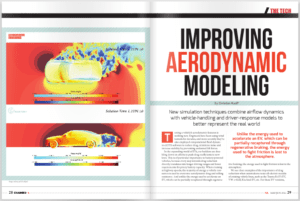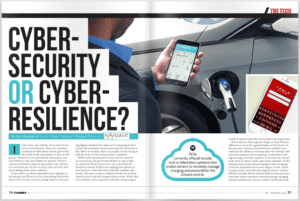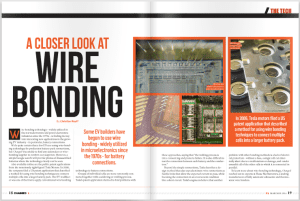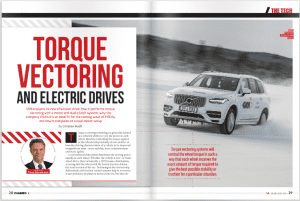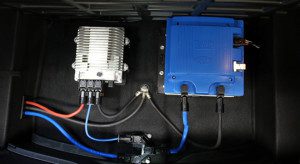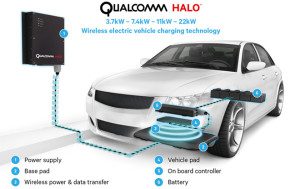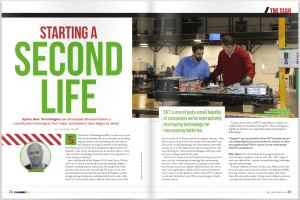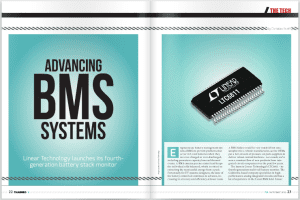Tuning a vehicle’s aerodynamic features is nothing new. Engineers have been using wind tunnels for decades, and more recently they’ve also employed computational fluid dynamics (CFD) software to reduce drag, minimize noise and increase stability by preventing undesired lift forces. In the expanding world of EVs, car builders are doubling down on efforts to push… Read more »
Search Results Found For: "motiv power systems"
Cyber-security or cyber-resilience?
By Sam Abuelsamid, Senior Research Analyst – Navigant Research If you move, you will die. If you don’t move, you are already dead. There are countless variations on that theme but the gist is that life is full of risk and, sooner or later, it will get you. However, if you plan ahead and prepare,… Read more »
Furrer+Frey proposes tractor swapping for long-haul trucks
While short-haul applications such as local delivery trucks, port drayage trucks and city buses are perfect candidates for electrification, long-haul trucking will likely prove more of a challenge, because of battery-electric vehicles’ limited range. Now Furrer+Frey, a Swiss firm that provides a wide range of rail transport products and services, has proposed a simple, low-tech… Read more »
Momentum Dynamics promises 200 kW wireless charging for electric buses
Momentum Dynamics says it will deliver 200 kW wireless charging systems for the municipal bus market in 2016. According to CEO Andrew Daga, the company delivered 25 kW and 50 kW systems to partners in the automotive industry in 2015, and is planning to deliver two wireless systems to municipal agencies in Maryland and Washington… Read more »
A closer look at wire bonding
Wire bonding technology – widely utilized in the microelectronics and power electronics industries since the 1970s – is finding its way into interesting new applications in the growing EV industry – in particular, battery connections. We’re quite certain that a few EVs are using wire-bonding technology for production battery pack connections, but Charged was unable… Read more »
Electric torque vectoring: Q&A with GKN’s Advanced Engineering Director (Full Interview)
Torque vectoring technology is generally defined as a vehicle’s ability to vary the power to each wheel. Quickly controlling the torque applied to the wheels independently of one another allows the driving characteristics of a vehicle to be improved in significant ways – more stability, more responsiveness and more agility. A conventional differential distributes the… Read more »
Delphi’s new 48 V mild hybrid system could see production in 18 months
Delphi Automotive (NYSE: DLPH) has unveiled a new 48-volt mild hybrid vehicle solution. The company says it is working with two global automakers on the system, and it could go into production within 18 months. Delphi’s mild hybrid technology, which it showcased in a Honda Civic diesel, uses electrification to minimize the demand on the… Read more »
Ricardo licenses Qualcomm Halo wireless charging technology
Ricardo, a consultancy business specializing in powertrain and vehicle engineering, has licensed Qualcomm’s Halo wireless EV charging (WEVC) technology. Ricardo plans to develop, make and supply WEVC systems for automobile manufacturers. Ricardo sees WEVC as an enabling technology that will drive mass adoption of plug-in vehicles by simplifying charging. Qualcomm subsidiaries will provide technical expertise… Read more »
Second life: Spiers New Technologies develops advanced battery classification techniques
Spiers New Technologies (SNT) is just over a year old, but its founder has been focused on developing the market and technology for secondary-use batteries as long as anyone in the business. Dirk Spiers is one of the more passionate figures in the EV industry. Like many entrepreneurs, he seems to have a clear view… Read more »
Advancing BMS: Linear Technology launches its fourth-generation battery stack monitor
Engineers use battery management systems (BMS) to prevent problems that occur in Li-ion batteries when they are over-charged or over-discharged, including premature capacity loss and thermal events. A BMS ensures precise control and keeps the individual cells balanced, which is critical to extracting the most useful energy from a pack. Fortunately for EV systems designers,… Read more »




